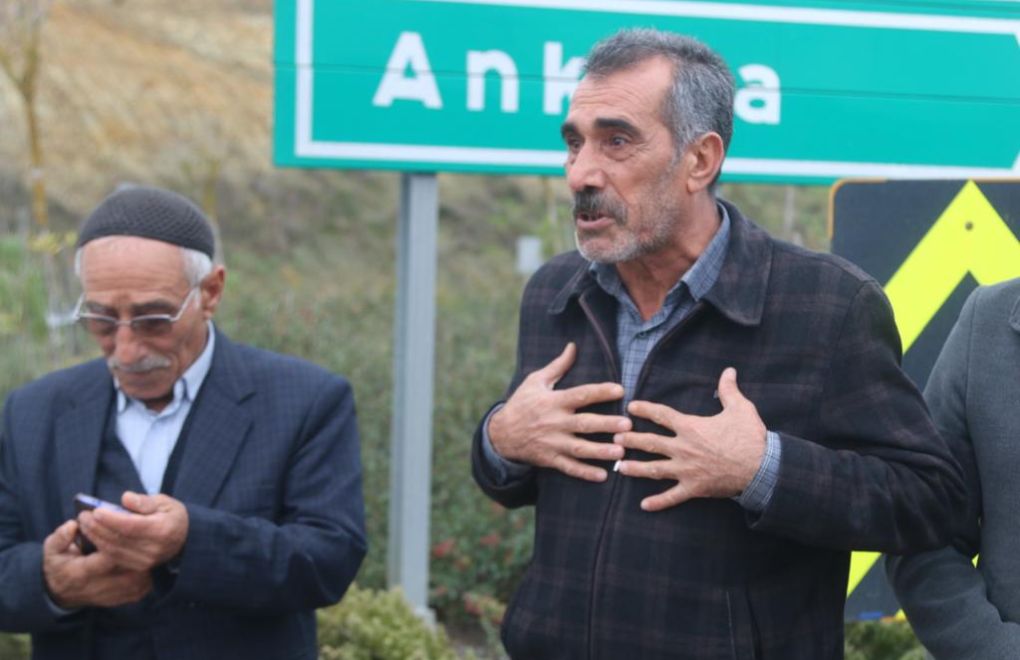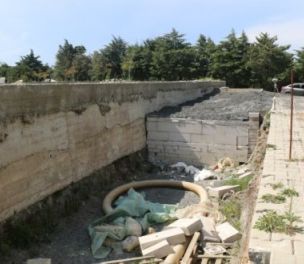Click to read the article in Turkish / Kurdish
On December 19, 2017, authorities demolished the Garzan cemetery in the Yukarı Bölek (Oleka Jor) village in the Kurdish-majority eastern province of Bitlis. The remains of the 282 Kurdistan Workers' Party (PKK) members were removed and transported to İstanbul's Kilyos cemetery and reburied in plastic boxes, without informing their families.
One of these remains belonged to Nizamettin Gökalan, who died in 1999 while fighting for the PKK. Gökalan's brothers Numan and Mustafa were able, after years of struggle, to receive the bones of their brother on Tuesday (December 13).
Around five years ago, they gave blood samples to the Forensic Medicine Institute, Numan explained. However, this was deemed insufficient, and blood samples of their deceased mother or father blood samples were necessary. Last June, they had to go to their father's village and reopen his grave to get a DNA sample.
"We now welcome the bones with open arms"
Numan Gökalan stated that for many years they neither knew that their brother died during the conflict that broke out in Garzan (Xerzan) in 1999, nor that he was buried in the Garzan cemetery. Nevertheless, in the last 23 years, they did not give up on finding their brother.
When they heard about the demolishment of the cemetery and the bodies found, they decided to see if his remains might be among them.
"We have been in dialogue with Bitlis for over two months, and we have reached our final goal. It just got so that we now welcome the bones with open arms." Numan Gökalan explains.
Gökalan points out that hundreds of bodies are still waiting to be taken from Kilyos.
"Come and take care of your corpses. These tears are tears of joy. I have only one request from the families, don't leave these bones here. Come and take them to their land. All the people here are my family. My brother is not my only brother. These people whose bodies are buried here are also my brothers. Our duty is to continue on this path."
What happened?
Authorities removed 282 bodies from the Garzan cemetery in the Yukarı Bölek (Oleka Jor in Kurdish) village in the eastern province of Bitlis, Between 8-17 December 2017.
Nobody knew where the remnants went for a long time until the Bitlis governate stated that the bodies were sent to Istanbul's Institute of Forensic Medicine. The bodies were subsequently buried at the Kilyos cemetery in Istanbul. For many years families were not able to bury their deceased members and needed to provide blood samples.
The families, together with their lawyers, filed a complaint to Istanbul Chief Public Prosecutor's Office for "blaspheming the memory of a person and "torture and maltreatment". However, the prosecutor did authorize an investigation and refused to open a lawsuit based on "not giving permission the investigate officers".
Thereupon, the families applied to the constitutional court for the "right to a fair trial" and "the violation of the right to respect private and family life". Lawyers who are members of the Association of Lawyers for Freedom (ÖHD) applied to the Constitutional Court in April 2021, stating that "the right to a fair trial has been violated". The Constitutional Court rejected both applications.
In May 2020. the families and ÖHD lawyers applied to the European Court of Human Rights (ECtHR) based on Article 8 "the right to respect private and family life"
While 20 families were able to get their hands on the bodies of their loved ones, other remains are still kept in the Kilyos Cemetery. There is no clear information on how many bodies have been handed over to their families. (EMK/WM/VK)





